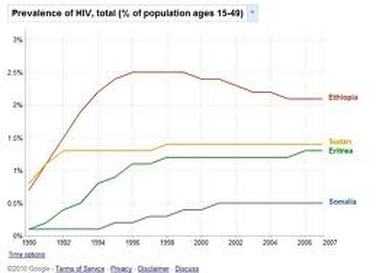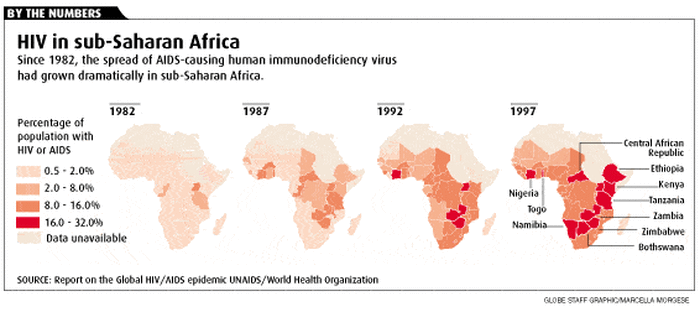History of AIDS/HIV

The government of Ethiopia does not give money, or use money to help reasurch the disease bacuse they feel that its a waste to use the money on research when they could use it on more important things like food and clothing.(geography.about.com 2008).The people of Ethiopea are causing this disease to spread because they are not aware of the consequences. They also do not have the money to provide information about this disease. Ethiopia today is not the most AIDS infected country in Africa, but by being surrounded with countries that have more AIDS/HIV people they may not be aware that they are helping spread the disease. Ethiopians may not be aware that the person they are with has that virus, wich causes it to spread.
Major African political leaders have denied the link between HIV and AIDS, favoring alternate theories. The scientific community considers the evidence that HIV causes AIDS to be conclusive and reject AIDS-denialist claims as pseudoscience based on conspiracy theories, faulty reasoning, cherry picking, and misrepresentation of mainly outdated scientific data. Despite its lack of scientific acceptance, AIDS denialism has had a significant political impact, especially in South Africa under the former presidency of Thabo Mbeki and in Zimbabwe under the current President Robert Mugabe.
Ethiopia's health care system is among the least developed in sub-Saharan Africa. The country has only 2,115 physicians and 17,845 nurses (2005). Widespread poverty, poor nutrition, low education levels, and limited access to health services have contributed to the high burden of ill health in the country.
Current life expectancy is estimated at 54 years, but is expected to decline as a result of the HIV pandemic. As much as 80 percent of the health problems in the country are due to preventable diseases, most notably HIV and malaria. In 2005, the Government of Ethiopia, with support from the U.S. President’s Emergency Plan for AIDS Relief (PEPFAR), embarked on an ambitious program to provide universal access to care and treatment for people living with HIV/AIDS (PLWHA).

